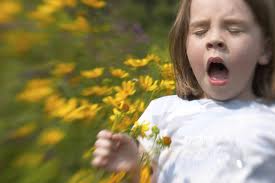Anastasia Balezdrova
Sneezing, itching and running eyes, stuffy nose and restless sleep - if these symptoms sound familiar, then you are certainly one of the millions of people on the planet who greet spring with fear rather than with joy. We are talking about allergies that occur with the first signs of the oncoming spring and trouble us for months. What is the reason for them? How can we relieve the symptoms and get rid of them?
Allergist and president of the Hellenic Association of Allergology and Clinical Immunology, Ioannis Paraskevopoulos, answers GRReporter’s questions.
"The word allergy itself (from allos meaning “other” and ergon meaning “work” – author’s note) shows that the body reacts in a strange and a paradoxical way to factors that do not threaten it in any way, such as pollen. However, it reacts against them with symptoms such as rhinitis and asthma.
The symptoms start in late February - early March and continue until the end of June. Our first contact with pollen is through the air we breathe. Therefore, the first symptoms occur in the nose and are the same as in fever: a running nose and sneezing. The difference is that there is itching in the nose during the allergic rhinitis. Other symptoms involve the eyes: itching, running, redness. Eyes become very sensitive and some patients suffer from allergic conjunctivitis, which often leads to photophobia.
Very often, those people who start suffering from allergic rhinitis in the spring start experiencing symptoms associated with the lungs after some time – they start coughing and feeling their chest "boiling."
 The first task of the allergists is to identify the cause of the symptoms. Although they occur mainly in the spring, it is possible for them to be due to other factors and be present all year round, for example, when the cause is the mites that are in house dust and live in our homes all year round.
The first task of the allergists is to identify the cause of the symptoms. Although they occur mainly in the spring, it is possible for them to be due to other factors and be present all year round, for example, when the cause is the mites that are in house dust and live in our homes all year round.
For this purpose, patients undergo the so-called allergy test. The procedure takes about 25 minutes. "After establishing the irritating factor, we start in each case immunotherapy, using the method of desensitization. It takes place depending on the individual case, the number and types of irritating factors. It usually takes place throughout the year and lasts from three to five years. This is because the purpose is not to merely relieve or reduce the symptoms but to break the allergy."
The usual treatment for suppressing the symptoms of spring allergies are antihistamines, nasal sprays and eye drops. "In general, it is better to avoid going out in the early morning and in the afternoon hours when the concentration of pollen in the atmosphere is at its highest. You have to change your clothes as soon as you get home, because they are full of pollen, which spreads in the house. It is almost impossible to prtoect yourself completely because you cannot stay constantly at home and you cannot avoid opening the window to ventilate the room, for example."
Research results show that the number of cases of allergies has been steadily growing and it is expected that half of the population of the planet will soon be affected. "The sharp increase of the number of cases began in the 1980s. Currently, 15 to 20 percent of the population in Greece has a breathing problem, and 30 percent suffer from some kind of allergy. There are various theories about the causes but the change in our lifestyle has been considered the major one. On the one hand, it is the environment at home - we have been increasingly using air conditioners, not airing the rooms enough; we cover the floors with carpets almost throughout the year. Another reason is the excessive use of antibiotics and vaccines. We have started eating in a very different way too – we have been increasingly adding different foods, knowing almost nothing about them – for example, what chemicals are used in them. All these things are taking us away from the "natural" way of life. That is why the prevailing opinion is that they are the cause of the spread of allergies in the modern world. "
The rate of allergies in the highly developed Western countries is very high – it reaches 25 to 30 percent. Respectively, this rate is very low in countries with a low standard of living. The case of Greece is characterized by the fact that cases of allergies have been rarely detected among the Roma compared with the general population.
"Modern man avoids frequent contacts with infections, deciding to take antibiotics very quickly and to use vaccines too. But viral infections actually "train" the immune system and when this trend stops, it is in favour of the occurrence of allergies. For example, a child who begins attending kindergarten at a very early age is less likely to suffer from allergies because he or she is in constant contact with infections, which makes the immune system stronger.
I do not want my words to be misinterpreted: Of course, you have to take antibiotics and be vaccinated, but always and only after consulting a doctor. It is completely wrong to take antibiotics during the first day of fever.
However, if you're still among the lucky ones who get away with just a little sneezing or your symptoms do not continue for more than a few days, you can take advantage of the "natural pharmacy," but, again, after consulting a doctor.
Some foods can strengthen the immune system and relieve the allergic symptoms. Here they are:
